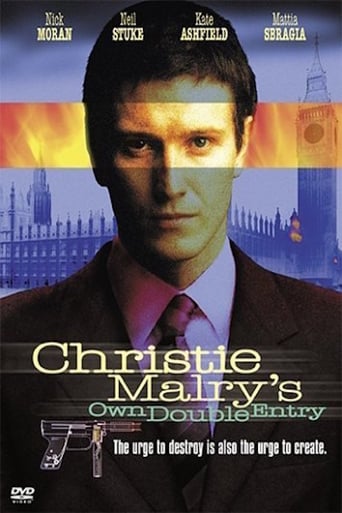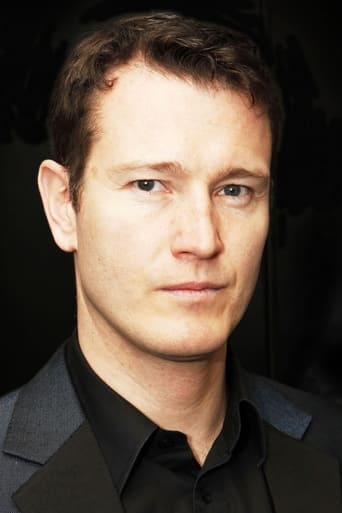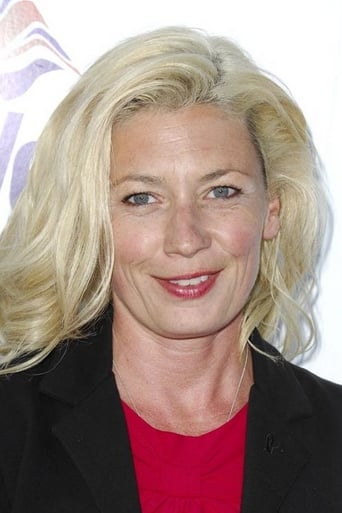

Christie Malry's Own Double-Entry (2000)
A man uses the principles of double-entry bookkeeping to settle his accounts with society.
Watch Trailer
Cast
Reviews
The Age of Commercialism
The film never slows down or bores, plunging from one harrowing sequence to the next.
Great story, amazing characters, superb action, enthralling cinematography. Yes, this is something I am glad I spent money on.
Actress is magnificent and exudes a hypnotic screen presence in this affecting drama.
Christie Malry's Own Double Entry should get a rare reprieve from the vaults of British film obscurity, a rare thing in British film, particularly as it came out during the attack of British idiotic Indies, out-and-out failures, mostly funded by the Taxpayer (e.g Shooting Fish, Rancid Aluminium, Lock, Stock.... etc).Most of those films came and went. But Christie Malry, based on the novel of cult English experimentalist novelist BS Johnson, and in which Lock Stock actor Moran plays the lead, is the best of these, although ironically it was never released or given any attention, presumably due to its playful, po-faced attitude to terrorism, which would never play post 9/11 (it was made before those events). This in itself is ironic, as Christie is an interesting study in terrorism, a sort of book-keeping Billy Liar who starts his own Fight Club-like crusade worthy of the UniBomber, which attains an added poignancy post 9/11- after all, in the film, made remember in 1999, Christie's surreptitious efforts help start the second Gulf War (and he is portrayed by the media as an Arab).I understand some of the criticisms of the film made by others below, such as Christie's unbelievable jobs, although Christie's bizarre double-entry system- e.g. "debit: Wagner's Lack of Sympathy: Credit: girl at butcher's shop smiled at me", to my mind makes him a more believable character- after all, he is hardly a balanced character.I can add some more myself (the failure to update the seventies novel to the present decade, leading to weird anachronisms- a result of lack of funding or attention in art direction?). But I also believe the film is a brave attempt at finding intelligence and depth in the British indie.Tickell is clearly an admirer of Greenaway, and this shows throughout, in the film's theatrical flair and sense of the visual, as well as the oddball eroticism, all part a way of understanding Christie's abnormal psychology. This is particularly evident in the 'historical' sub-plot of the film (the development of double-bookkeeping in Renaissance Milan by a priest with links to Da Vinci).And I think the acting is marvellous throughout, particularly the Renaisance Italians and Shirley Ann Field as Christie's mother, and Moran, while not a brilliant actor, clearly works hard in the complex task of being Christie (he says it is his best film, although I don't think there's much competition- with the exception of Puritan, another little known British Indie with Moran at its centre).
At last! a decent British film that actually made me laugh out loudat the dark, dark humour on display throughout this film. OK, so itcan't compete visually with Hollywood, and the ending issomewhat shoe-horned in uncomfortably, but, it does have somefine under stated acting and an anti-capitalist message we can allrelate to, to some extent at least! . Watch, as the seemingly dimwitted Christy see's the light and puts a shape to the confusion ofadulthood with a simple but single minded plan to have hisretribution on the powers that be that make his life difficult. Everydebit must have a credit indeed! See this film, then go read thebook. Good soundtrack,but bad, bad DVD cover, this won't help peoplepick it up in Blockbusters!
So you're a fan of B. S. Johnson's novel 'Christie Malry's Own Double-Entry', you admire his experimentation and playfulness with the literary form, you enjoy the black humour and anti-capitalist message, and, most importantly, the manner in which Johnson never allows his reader to forget that this is a work of fiction, using such devices as Christie himself talking directly to the author?Then on no account watch this film.You'll spend the whole time shouting at the screen wondering how they could have missed the point so comprehensively. In an interview on the DVD the screenwriter claims to have stayed faithful to the book, which is laughable. I won't go into too much detail, but here's two key point for you to think about:1) The biggest debit recorded by Christie is that socialism has not been given a chance. This is essentially the political message of the novel, but not mentioned in the film.2) In the film, Christie en-route to Westminster when his own bomb destroys the bus he is riding on. The implication is that he causes his own downfall, is responsible for his own death. In the book, he dies from cancer, randomly. So the complexity and open-endedness of the book (Johnson refuses to tell us if he destroys parliament or not) is lost is the cause of a nice understandable ending that will not tax the brains of the audience. All in all, enormously disappointing. B. S. Johnson subversively refuses to to describe Christie, saying we must create him in our own way (like God). So I suppose all sorts of interpretations are acceptable, but this is a very, very poor one.Luke Haines's soundtrack is excellent, though.
The film, set in 1999, is a version of a novel from the seventies about a young man from Hammersmith's London Irish Community, Christy Malry who decides to live his life according to the principles of double entry bookkeeping. For every debit he exacts a credit or recompense. This starts as means to avenge dismissive or rude workmates but evolves into being against society, the more credit owed to him the more extreme his means become. This is against a backdrop of news of America and Britain bombing Iraq. Eventually Christy starts making the news.In a parallel plot we see the life of the monk, Pacioli who invented double entry bookkeeping in renaissance Italy (we are witnessing the birth of capitalism as we know it) and his dealings with his patrons and Leonardo Da Vinci. It illustrates the death of the old system of religious patronage and new system where everything (including loyalty) has a price. This is an unusual, intensely gripping story, superbly acted by the entire cast, although Nick Moran as Christy and Shirley-Anne Field as his cancer-ridden mother deserve a particular mention. The unsettling atmosphere is supplied through the superb direction of Paul Tickell and an evocative score by Luke Haines.A world-beating independent film to go and see. Ten out of ten.


